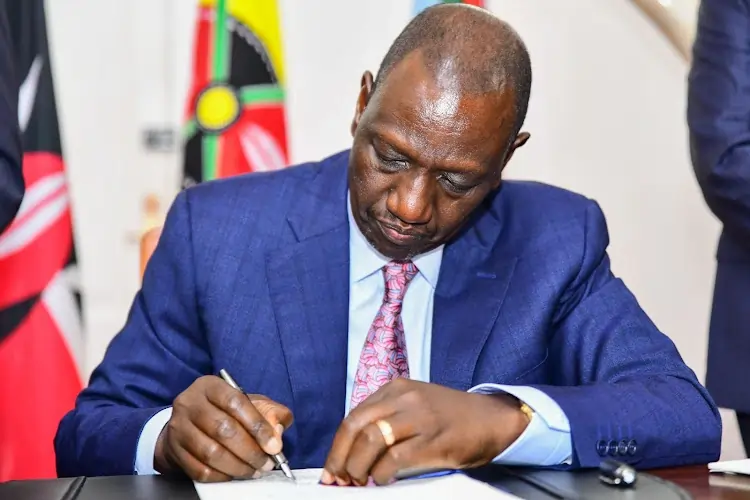
Wafric News – June 26, 2025
NAIROBI – President William Ruto has signed into law the highly anticipated and hotly debated Finance Act 2025, ushering in a new phase of Kenya’s economic reform agenda. The legislation, assented to on June 26, 2025, introduces sweeping changes aimed at modernizing tax administration and attracting both local and foreign investment.
The new law amends key sections of Kenya’s tax framework, including the Income Tax Act, Value Added Tax (VAT) Act, and Excise Duty Act, with a focus on easing tax compliance and encouraging innovation-led economic growth.
Among the notable reforms is the requirement for employers to automatically apply all eligible tax reliefs and deductions on behalf of employees—an effort to reduce the tax burden on salaried workers. The daily tax-exempt subsistence allowance has been raised significantly from KSh 2,000 to KSh 10,000. Additionally, pension and retirement gratuities have been fully exempted from taxation, offering a financial reprieve to retirees.
Startups and large-scale investors are also set to benefit from the reforms. The Act introduces a 15% corporate tax rate for startups during their first three years, and extends the same rate for ten years to companies investing more than KSh 3 billion in the country.
In a major shift in digital tax policy, the controversial Digital Assets Tax has been scrapped. It will be replaced by a 5% excise duty on transaction fees charged by virtual asset service providers. The Capital Gains Tax on high-value investments has also been cut from 15% to 5%, in a bid to boost investor confidence.
The government will now have access to KSh 1.88 trillion from the Consolidated Fund for the 2025/2026 fiscal year, alongside KSh 671.99 billion sourced from internally generated revenues by ministries and state agencies.
Significantly, the final version of the Act reflects some concessions to public sentiment. Parliament rejected contentious provisions, such as allowing the Kenya Revenue Authority (KRA) unrestricted access to personal data, following strong backlash from civil society and digital rights groups.
This year’s finance legislation comes in the wake of widespread protests that rocked the country over the Finance Bill 2024. In contrast, the 2025 approach places greater emphasis on fiscal discipline, administrative reform, and investor incentives—opting not to introduce sweeping new taxes that could reignite public unrest.
As Kenya positions itself as a competitive destination for innovation and investment, the Finance Act 2025 signals the government’s pivot toward long-term economic transformation, though not without raising fresh debates on transparency, accountability, and the burden of fiscal policy.
By WafricNews Desk.
By WafricNews Desk.


Comment
To post a comment, you have to login first
LoginNo Comments Yet...